Impeaching Zarif!
The editorial of Ebtekar newspaper mulls over the consequence implications of impeaching Iranian FM Mohammad Javad Zarif by hardline lawmakers. The issue of impeaching Zarif was raised when he, in his recent remarks, pointed out to existence of extensive money laundry in Iran.
According to the editorial, Zarif stands for the moderate approach of Rouhani’s government that gained the majority of people’s votes in two past presidential elections. This approach’s agenda was Iran’s glorious return to the international community. This priority still exists and majority of voters hold that active diplomacy is one of the main policies to surmount the existing problems.
The editorial continues: impeaching Zarif by those who are against the nuclear deal can have no justifications at the time when Iran’s diplomacy needs credit and legitimacy more than any other time. While Trump’s administration and its regional allies are busy making Iran’s active diplomacy ineffective and Iran’s foreign policy has most responsibility to confront it, those proposing impeachment of Zarif insist on doing it.
The editorial then asks: but is making Iran’s diplomacy inefficient really less costly than Zarif’s remarks about money laundry? Zarif’s remarks about extensive money laundry in Iran are based on reiterated remarks of lawmakers and judiciary officials. What is more, those backing impeachment can wait until the reaction of the judiciary to Zarif’s argument in this regard.
The editorial concludes: rushing the plan for impeachment can only end in busying Iranian diplomacy with an issue that has had a great impact on diplomatic measures in interaction with the international community. And in the meantime, it will marginalize the key issue of confronting money laundering in Iran and joining FATF and CFT.
Ebtekar – November 27
Reformists Escaping Forward and Few Fundamental Questions
The editorial of Asr-e Maa Iranian brings about questions regarding Iranian reformists’ response to the failure of Rouhani’s government, asking them to apologize for the poor performance of the government.
The editorial asserts: failure, confusion and inability are words that can best describe the current conditions of the government and Hassan Rouhani, as the president. In foreign policy, there is no longer any nuclear deal in actuality. And as for domestic affairs, the government has had no clear, effective achievements so far.
The editorial continues: on the threshold of parliamentarian election and following the failures of the government in fulfilling its promises, Iranian reformists are now looking for a new political opening for themselves. Some reformist figures like Mohammad Reza Khatami, Gholamhossein Karbaschi, and Mostafa Tajzadeh have actually admitted the government’s failures and in numerous cases, they have announced regret for backing it.
The editorial then asks: had the reformists considered the destiny and lives of Iranian people in their decisions? Isn’t it time for them to apologize to people officially? What guarantee is there that in the upcoming election they won’t come back with their false, misleading slogans?
The editorial concludes: the reformist current has no way but to be accountable and apologize for the poor performance of the current government which they fully supported during past two elections.
Asr-e Iranian – November 27
It is not the Time for Exonerating Europeans!
The editorial of Vatan Emrooz focuses on Europeans’ attitudes and performance regarding the nuclear deal (JCPOA) with Iran, suggesting that Iranian FM Mohammad Javad Zarif insists on drawing a line between Europeans and Americans, while there are no differences between the two.
According to the editorial, Mohammad Javad Zarif, in response to the question if Americans and Europeans are playing ‘good cops’ and ‘bad cops’ with regard to the JCPOA, said, ‘I should say that Europeans and Americans agree over some policies and issues and have different opinions over some other issues including the JCPOA; in my opinion, no one is playing good cop and bad cop in this regard.’
The editorial continues: no doubt, there are differences between the United States and Europe. But can we extend these differences to the question of the JCPOA? If so, how come European Union has accompanied the United States in the process of ‘changing the JCPOA’? Moreover, how come that the European officials have remained silent towards renewing ISA (Iran Sanction Act), ratification of CAATSA (Countering America’s Adversaries Through Sanctions Act) and restriction in issuing visa for those who travel to Iran?
The editorial adds: has Mr. Zarif forgotten that people like Macron, Merkle, and Thresa May have talked repeatedly about Iran’s destructive role in the region, shortcomings of the nuclear deal, the necessity of controlling Iran’s missile capability, and the importance of negotiating with Tehran over imposing new nuclear restrictions? Has Mr. Zarif forgotten about Europe’s utmost accompaniment with Trump’s administration over ‘changing the JCPOA’?
The editorial concludes: 6 months have passed since the US pullout of the nuclear deal. Europe’s incentive package and their so-called ‘special mechanism’ for preserving the JCOPA have not been presented yet. Under such conditions, what does it mean to exonerate Europeans from ‘violation of the JCPOA’?
Vatan Emrooz – November 26
Ripping Apart the Bureaucracy or Turning to Youths?
The editorial of Arman daily addresses the inefficiency of the law passed by Iranian Parliament to prevent use of retirees in government positions in the country.
According to the editorial, the law preventing use of retirees is a measure taken by Iranian Parliament without conducting comprehensive studies. The biggest excuse to justify the necessity of passing this plan is to create opportunity and employment for the youths. Meanwhile, the elites in the society and those with experience in managerial level know that university graduates – due to different reasons – do not have the necessary capability for doing their jobs in the beginning.
The editorial goes on to say: with respect to this law, the lawmakers were caught in a populist slogan and voted for it. The law, as it is, results in eliminating the efficient people, while certain people – those close to Iranian establishment – will be exempted from it. If the lawmakers intended to break the closed circle of managers within the government to bring in capable people from among the youths, one can see from the beginning that this goal will not be achieved.
The editorial concludes: the clear signs of damages of this law are right in front of us. Shahindokht Molaverdi who has both the education and experience is set aside because of this law. In the meantime, certain ministers and senior officials are not subject to this law.
Arman Daily – November 26
International Islamic Unity Conference, or Platform to Insult Muslim Countries?
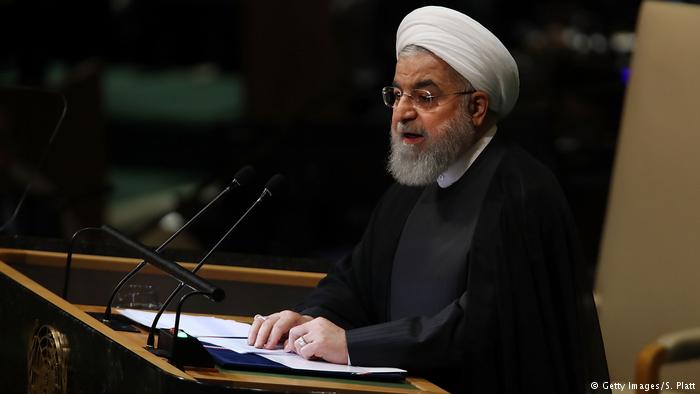
Iranian authorities used International Islamic Unity Conference held in Tehran as a platform to lash out at other countries including Saudi Arabi and Emirates – casting a shadow over the purpose of the conference which is to unify Shias and Sunnis. In the opening ceremony of the conference, Iranian President lambasted Saudi government for its relationship with the United States, while being insulted by that country. He also criticized some Arab countries for giving ‘$450 billion “gift” to the United States and purchasing $110 billion arms from this country’. Rouhani, in a different note, called Israel a ‘cancerous tumor’ and a ‘fake regime’.
Iranian political activist and academic Sadegh Zibakalam slammed Hassan Rouhani for his sarcastic tone against Saudis at a conference which is supposed to bring together Shi’as and Sunnis. Zibalam wrote in his twitter: ‘It was in the framework of unity and sympathy between Shi’a and Sunni that Mr. Rouhani talked with that offensive and humiliating tone about Saudis. I can’t imagine what phrases and sentences he would have used if he intended to insult them!’
The Islamic Republic supreme leader Ali Khamenei, during his speech at the International Islamic Unity Conference in Tehran, severely criticized Saudi Arabia for its cooperation with the US administration. Khamenei said America humiliates some of its followers in the region. “America and the Zionist regime are dead wrong to threaten Iranian nation,” asserted Khamenei.
Ali Larijani, Iranian parliament speaker, too, warned Saudi Arabia and the United Arab Emirates against supporting America and Israel. In his speech at the International Islamic Unity Conference, Larijani stated Saudi Arabia and the United Arab Emirates are making a “mistake” in supporting the U.S. and Israel. He added that Iran would not let go of this mistake and would retaliate.
The US Secretary of States Mike Pompeo, in a press statement released on Monday, reacted to Rouhani’s remarks regarding the United States and Israel during this conference, saying these remarks work ‘to isolate regime from both world and Iranian people’. The statement read, ‘Iranian people know better and do not agree with their government which has badly represented them to the world for 39 years. The people have suffered under this tyranny for far too long.’
Deutche Welle
Radio Farda
Belligerent IRGC Threatens US Bases in Region
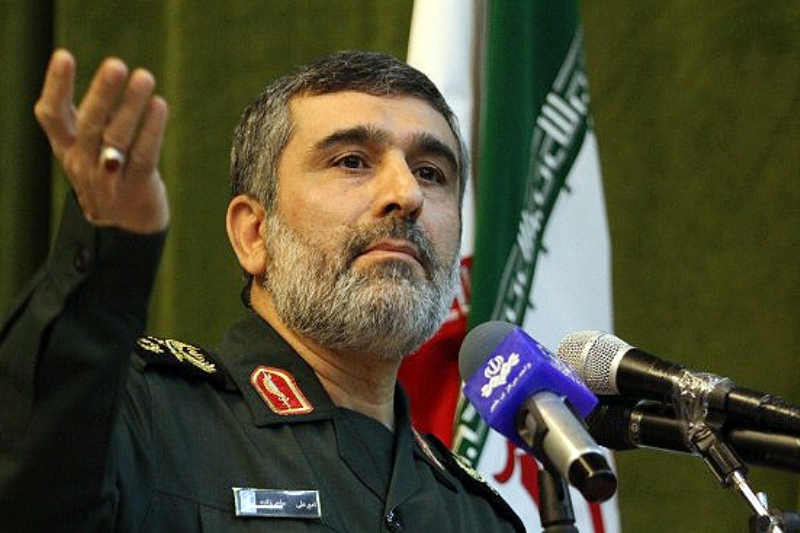
Commander of IRGC Aerospace Force, Brigadier-General Amir Ali Hajizadeh, keeps threatening the US military forces in the region, calling them easy target for Iranian missiles. He said US bases in Afghanistan, UAE, and Qatar, as well as US aircraft carriers in the Gulf and Oman Sea, are within reach of Iranian missiles. In a TV interview with Iran’s state-run TV, Hajizadeh stated that ‘Al Udeid and Al Dhafra bases are less than 300km and Kandahar base less than 400km away from us; if they [Americans] make a move, we will strike them.’ He went on to add that ‘the same conditions exist in sea. Today we have achieved sea missiles with 700km range which can be used in Oman Sea; US aircraft carriers are easy target for us.’
Islamic Republic’s authorities have already threatened several times that if Iran cannot export its oil, other countries too will not be able to export oil – a threat seen as Iran’s possible intention of closing Hormuz Strait as one of the most vital waterways for global oil.
After these remarks and other threats by Islamic Republic’s authorities, Admiral John Richardson, operational commander of US naval forces, warned Iran that the United States, even by force, will keep Hormuz Strait open for traffic of ships.
The remarks of Brigadier-General Amir Ali Hajizadeh are brought up when the US sanctions fully returned on November 4. National Security Advisor John Bolton urged that the United States intends to double down on sanctioning Iran. He added that ‘we think the government is under real pressure and it’s our intention to squeeze them very hard’.
Western countries including the United States and France consider Iran’s missile program a threat against stability in the region. Trump’s administration is after a new deal with Iran that will include Tehran’s missile program. But Iran has kept rejecting these demands, urging that its missile program is nonnegotiable.
Entekhab
Radio Frada
Zarif on the Path to Impeachment
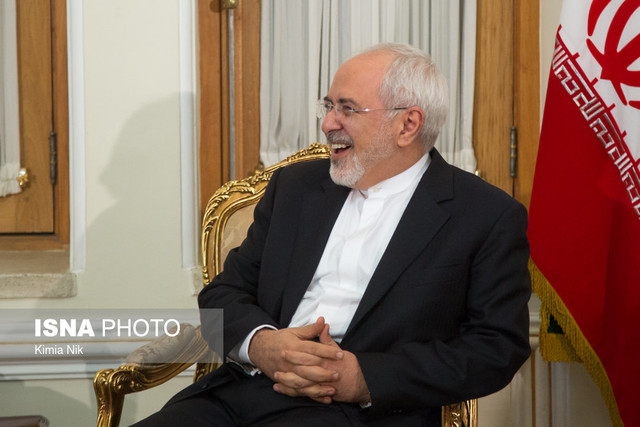
Iranian hardline lawmakers eventually managed to submit the proposal for impeaching Iranian FM Mohammad Javad Zarif with 24 signatures to the parliament’s board of directors on Tuesday, November 27. Zarif’s impeachment proposal consists of 11 main points including ‘taking wrong positions towards money laundry’, ‘lack of attention to economy in the country’s diplomacy’, ‘deploying inefficient ambassadors’, ‘lack of attention to development of relationship with Asian, African and Latin American countries’, ‘threatening the defense foundation of the country’ and ‘not securing the national interests in signed contracts’. If the proposal is approved, Zarif will be the first Foreign Minister of Islamic Republic to be impeached.
Zarif’s recent remarks about “extensive money laundering” in Iran sparked extensive reactions. He had commented on the negative atmosphere against money laundry bills in Iran, saying that was because of ‘economic interests of certain people’. In an interview with Khabar Online website, he had urged on the existence of extensive money laundry, adding that ‘many benefit’ from this situation. He also said the major cause behind propaganda against anti-money laundering laws– such as CFT (Combatting the Financing of Terrorism) bill– was the “economic interests” of those individuals.
At the core of the controversy is the issue of FATF. In recent past months, Iran’s political domain has witnessed extensive disputes over joining the UN Terrorist Financing Convention. Friday Mass Prayer leaders, IRGC commanders, and a group of lawmakers – who signed a petition against this convention – are the most important opponents of joining Terrorist Financing Convention.
Meanwhile, the tension is mounting in the parliament. 27 lawmakers have written a letter requesting the investigation of Iranian parliament speaker Ali Larijani. The lawmakers, members of the Front of Islamic Revolution Stability, said in their letter that Larijani acted against the law when he referred the money-laundering bills to Iran’s Expediency Council. The letter asked the parliament’s committee on codification internal regulations to investigate Larijani’s illegal behavior.
Impeaching Zarif will damage Iranian foreign policy, particularly at the time when US administration is trying to make Iran’s diplomacy ineffective.
ISNA
BBC Persian
Workers Ask to Be Paid; Iranian Judiciary Chief Threatens Them

Iranian workers strike in cities of Ahvaz and Shush continued against all odds during past week. Workers of Haft Tapeh Sugar Cane Factory staged their protest, despite the fact that the police issued a statement “forbidding” any kind of assemblies in the city of Shush. The video clips published on social media showed workers chanting slogans such as, “They have stolen Haft Tapeh, and they are bragging about it too!” as well as “Death to oppressors, long live workers!” Workers’ demands include ending the privatization of their factory, complete payment of their delayed wages and release of their representative Esmaeil Bakhshi who was arrested during labor demonstrations.
Meanwhile, workers of Iran National Steel Industrial Group took to streets of Ahvaz, chanting “Neither the ruler, nor government cares about the nation!” and “We are steel workers, we will uproot oppression!” The workers asked for entire payment of their delayed wages as well as transference of their factory’s ownership from National Bank of Iran to the government.
The judiciary chief Sadegh Larijani had threatened workers, saying “the enemy” was after taking advantage of their demands. “It is not acceptable to use workers’ demands for disrupting order in the country,” Larijani pointed out. He had warned that those demands would not be fulfilled through “turmoil, crisis and measures against public order.” Besides, members of the security council in Shush had “pressured and threatened” the representatives of Haft Tapeh workers to announce the “end of strike”, according to the Free Union of Iranian Workers.
More, the private manager of Haft Tapeh factory, Omid Asadbeigi, published a video message in which he called for ending workers’ strike and said, “This strike won’t lead to anything but disorder and numerous problems for the factory.” This video message came after judiciary spokesperson Gholamhossein Mohseni Ejei announced last week that the manager of Haft Tapeh factory had fled and President Rouhani’s chief of staff said he had been arrested.
Radio Farda
US Accuses Iran of Pursuing Chemical Weapons
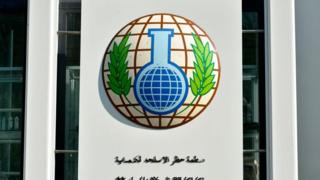
The United States has accused Iran of not declaring chemical weapon-related activities in violation of commitments to Organization for the Prohibition of Chemical Weapons (OPCW). The US ambassador to OPCW, Kenneth Ward, brought up these charges against Iran at The Hague on November 22. He said that the United States has been long concerned that Iran has a ‘chemical-weapons program’ and it hasn’t declared it to OPCW, adding that the United States is also ‘concerned that Iran is pursuing central-nervous-system-acting chemicals for offensive purposes’.
Iranian FM Mohammad Javad Zarif responded to these allegations in a tweet, writing: ‘US wants to resort to int’l conventions to make allegations against Iran when it’s made a policy of violating them itself. WMD allegation – by a country that supported Iraq’s use of CW against Iran; then invaded Iraq to allegedly rid it of them – is not just obscene, it’s dangerous.’
If the United States is after following these allegations up, the OPCW’s powers are currently limited. Yet it is possible that the United States seeks to impose more sanctions on Iran based on these accusations.
BBC Persian
A Chinese Company Replaces French Total SA in South Pars
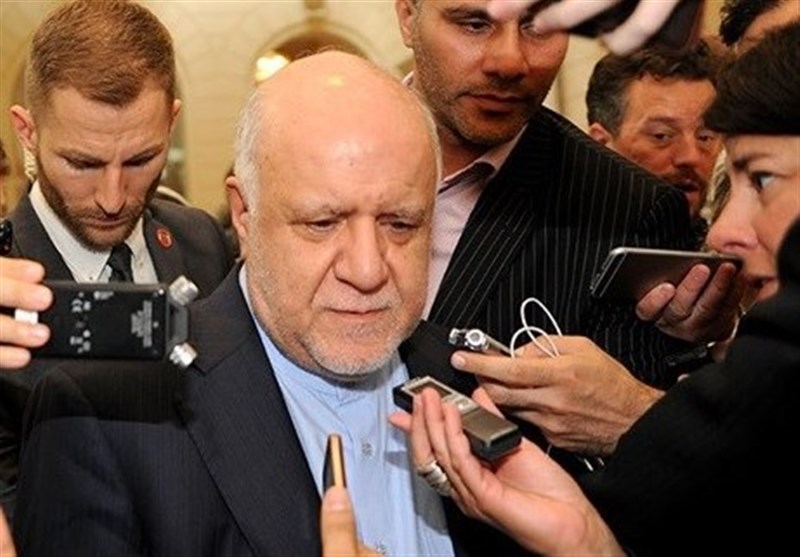
Iran’s Oil Minister Bijan Zanganeh announced that the Chinese company CNPC has officially replaced France’s Total for developing phase 11 of the South Pars natural gas field. Zanganeh added CNPC has not started its work in the field yet. Iran should negotiate with the Chinese company to determine its starting operation date, Zanganeh stated. Total SA, a French oil company that ranks as one of the world’s major petroleum corporations, abandoned operations to develop the South Pars gas field’s phase 11 in the wake of U.S. withdrawal from Iran nuclear deal.
The contract to develop Phase 11 of South Pars natural gas field was initially signed last year by Total with 50.1%, CNPC with 30% and Iranian Petropars with 10.9%. But after the US pulling out of the JCPOA, Total announced that it would leave the project if it couldn’t get exemption from sanctions. This company eventually stated that the United States had not agreed with granting exemption and left the project.
With European major companies leaving Iran, it hopes to find ways to alleviate the economic pressures due to US tough sanctions, mainly by turning to allies like Russia and China.
Tasnim News Agency
40% Live under Relative Poverty Line, 32% under Absolute Poverty Line in Iran
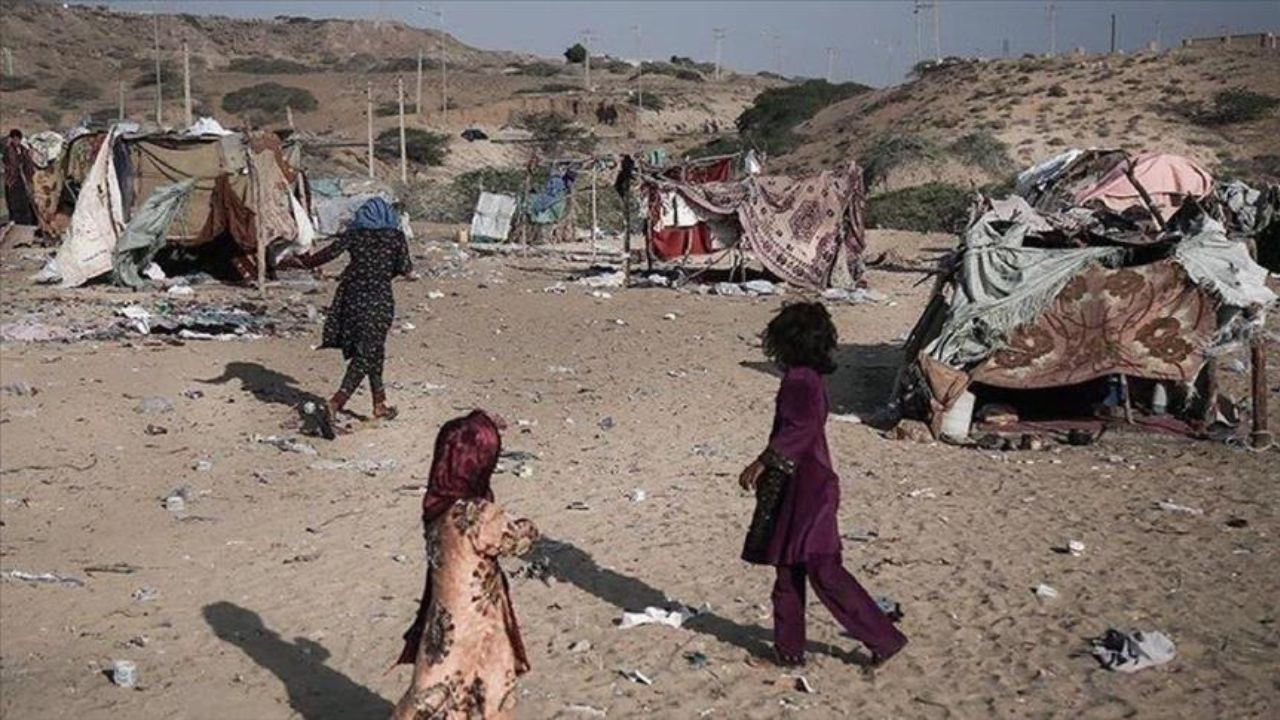
A number of economists and lawmakers have expressed alarm over poverty rate in Iran, saying 40 percent of the country’s population live under relative poverty line and 32 percent, under absolute poverty line. Economist Hossein Raghfar had previously said the “absolute poverty line” for a family of four living in a city was around 4 million tomans. Based on that information, 33 percent of Iran’s population; namely 26 million, suffer from absolute poverty. Besides, 6 percent of the country’s population; namely 5 million, live under “hunger line”, meaning they cannot even afford to pay for their food let alone their housing, transportation or clothes. In addition, Parliament Member Rasoul Khezri lately said poverty line will be reaching 10 million tomans in Tehran, and 5 million tomans in provinces.
Meanwhile, economist Fereidoun Khavand stated Iran’s Ministry of Welfare and Social Security has refused to announce the total number of the poor in the country as well as criteria used for evaluation of poverty since 2005.
Etemad online—November 28
